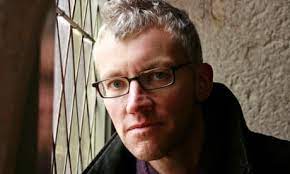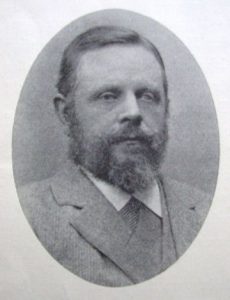Thorwald C. Franke
Harth, Jordi Guri
Jordi Guri Harth is the author of a 2024 Kindle book Atlantis – The Cypriot Empire [2092]. It is a feeble attempt to breathe new life into the idea of Cyprus as Atlantis, a claim promoted by Robert Sarmast, with great fanfare, some years ago, but of which, little has been heard from him in recent times.
Thorwald C. Franke has published a short critical review(a) of the book, pointing out a number of weaknesses that he identified in it.
Harth is also the author of a paper on the academia.edu website entitled The Odyssey and the Epimenides Paradox(b) .
(b) (PDF) The Odyssey and the Epimenides Paradox | Jordi Guri – Academia.edu *
Fränzle. Beate
Beate Fränzle is a German scholar with a diverse background in classical philology, ancient history, and Greek studies. In Thorwald C. Franke‘s Newsletter No. 222 (June 2024)(a) he reviewed her paper Solon bei Platon and concluded that Dr. Fränzle “takes the view that Plato meant the Atlantis story to be true and historical, i.e. real. Whether this story from Egypt actually has any truth to it, and what that truth is, is not yet clear. Basically, Beate Fränzle belongs more in the camp of Atlantis supporters than Atlantis sceptics.
Beate Fränzle has announced a publication entitled Solons Götter – Platons Theologie, in which she will take a closer look at these theses. The article Solon bei Platon is an early extract from the forthcoming publication.”
(a) https://www.atlantis-scout.de/atlantis-beate-fraenzle-engl.htm
Holland, Tom
Tom Holland (1968- ) is the English author of a number of books on ancient and medieval history as well as a presenter of  documentaries on the BBC.
documentaries on the BBC.
Holland along with Dominic Sandbrook has fronted an extensive series of podcasts titled The Rest is History . Two recent (50 min) episodes(a)(b) dealt with the story of Atlantis. Thorwald C. Franke was ‘displeased’ with their content and produced a lengthy critique of the two segments in German(d) and English(c) in his Newsletter No.211. I advise that his full paper be read.
(a) (77) 314. Atlantis: The Legend – YouTube
(b) (77) 315. Atlantis: Legacy of the Lost Empire – YouTube
(c) Tom Holland on Plato’s Atlantis – Atlantis-Scout (Eng)
(d) Tom Holland über Platons Atlantis – Atlantis-Scout (Ger)
Svensén. Emil
 Emil Svensén (1850-1931) was a Swedish journalist who had a great interest in Atlantis. Thorwald C. Franke tracked down two publications(a)(b) in which Svensén offered his opinions on Atlantis.
Emil Svensén (1850-1931) was a Swedish journalist who had a great interest in Atlantis. Thorwald C. Franke tracked down two publications(a)(b) in which Svensén offered his opinions on Atlantis.
He believed that Plato’s Atlantis was based on at least two historical realities – the invasions of the Sea Peoples and the eruption of Thera, although details of the events became distorted and eventually emerged as the narrative we now have.
(a) Jorden och menniskan – Allmän geografisk läsebok “, Series: Svenska biblioteket , Stockholm (Fahlcrantz & Co) 1887
(b) “Atlantis”, in: Ord och Bild , 1895, pp. 289-310
Emil Svensén (1850-1931) was a Swedish journalist who had a great interest in Atlantis. Thorwald C. Franke tracked down two publications(a)(b) in which Svensén offered his opinions on Atlantis.
He believed that Plato’s Atlantis was based on at least two historical realities – the invasions of the Sea Peoples and the eruption of Thera, although details of the events became distorted and eventually emerged as the narrative we now have.
(a) Jorden och menniskan – Allmän geografisk läsebok “, Series: Svenska biblioteket , Stockholm (Fahlcrantz & Co) 1887
(b) “Atlantis”, in: Ord och Bild , 1895, pp. 289-310
Nowak, Peter
Peter Nowak is the author of the 2016 German-language book Everything You Wanted to Know about Atlantis (Was Sie schon immer über Atlantis wissen wollten)[1955]. Roland M. Horn, the Atlantisforschung founder, wrote the Foreword and declared that this “is one of the best Atlantis books ever written in my opinion!”(a)
Thorwald C. Franke has offered more muted support in an Amazon review(a).
Assman, Jan
 Jan Assmann (1938- ) is a renowned German Egyptologist and is Emeritus Professor at the Ruprecht-Karls-University Heidelberg. In June 2018, Thorwald C. Franke (Newsletter No.117) offered the following comments on Assmann’s attitude to Atlantis. “In his works, Jan Assmann touches on the topic of Plato’s Atlantis several times. In all relevant passages, he consequently avoids formulations and wordings which declare Atlantis to be just an invention by Plato. Assmann talks about the Atlantis tradition as an Egyptian tradition.
Jan Assmann (1938- ) is a renowned German Egyptologist and is Emeritus Professor at the Ruprecht-Karls-University Heidelberg. In June 2018, Thorwald C. Franke (Newsletter No.117) offered the following comments on Assmann’s attitude to Atlantis. “In his works, Jan Assmann touches on the topic of Plato’s Atlantis several times. In all relevant passages, he consequently avoids formulations and wordings which declare Atlantis to be just an invention by Plato. Assmann talks about the Atlantis tradition as an Egyptian tradition.
On the other hand, Jan Assmann avoids any explicit statement in favor of the existence of Atlantis, and how to imagine this existence in detail. And of course, as a reasonable Egyptologist, Jan Assmann rejects pseudo-science approaches such as considering Egypt and the Sphinx 11000 years old.
Assmann’s book with the most relevance to Atlantis research is “Wisdom and Mystery: The Image of the Greeks of Egypt”, which is available in German only, while other works of Assmann have been translated into English.”(a)
Assmann’s book Cultural Memory and Early Civilization [2071] can now be read online (b)
(a) https://www.atlantis-scout.de/atlantis_newsl_archive.htm *
(b) (99+) Assmann, Jan – Cultural Memory and Early Civilization | mustafa kaya – Academia.edu *
Bradwardine, Thomas
Thomas Bradwardine (1290-1349) was a highly regarded mathematician and theologian, who was, for a very brief period, Archbishop of Canterbury just before his death. Thorwald C. Franke has drawn attention to Bradwardine’s rejection of Plato’s, or more correctly the Egyptian priest’s, apparent claim of a very early date for Atlantis [1255.242]. It seems, particularly as a cleric, that he found such a date conflicted with biblical chronology. It seems that in the end, he proposed that Plato’s ‘years’ were lunar cycles.
Similarly, Pierre d’Ailly (1350-1420), a French theologian who became cardinal, arrived at the same conclusion. While discussing Timaeus he realised that Plato’s dates of 8,000 and 9,000 ‘years’ before Solon conflicted with church teaching that the world had only lasted for 6,200 years until the birth of Christ. In order to avoid an accusation of heresy, he used Bradwardine’s explanation that Plato referred to lunar cycles, not solar years.(a)
It is not unreasonable to deduce from this, that Bradwardine and d’Ailly would not have bothered to offer the ‘lunar cycle’ explanation unless they accepted the reality of Atlantis. It would have been much easier to dismiss the Atlantis story as a fiction.
Rodríguez Cantos, Pablo
Pablo Rodríguez Cantos is self-described as “a mathematician, a Catholic priest and an amateur poet from Granada.” We first encountered him earlier this year (2021), when he published a review (in Spanish) of Paulino Zamarro‘s book[0024], a review that can be read in English here.
Rodriguez has been studying the matter of Atlantis for some time and has published a number of related blogs on his website(b). He has now advanced further into the swampy field of Atlantology by establishing a bilingual English/Spanish forum(a) which he “expects to be a meeting point for professional, independent and amateur researchers on Atlantis topics according to a scientific methodology. Everybody can read the forum, but you must register for writing messages. Registration is completely free and really simple. Please read and accept the rules of the forum before you participate.”
Due to a daunting backlog of work I was unable to participate in it as I had hoped. I now note in his Newsletter 178(c) that Thorwald C. Franke has withdrawn from the forum as he realised “that the forum admin was not pursuing an existence hypothesis on Plato’s Atlantis at all, but an invention hypothesis.”
(a) Atlantis Forum (foroactivo.com)
Joining the Dots
Joining the Dots was the title of my book published 0ver two years ago. Its intention was to show that there was cumulative evidence that demonstrated the reality of Atlantis and had existed in the Central Mediterranean. While individual points have limited value, when put together, it clearly shows that ‘the balance of probabilities’ favours the existence of Atlantis.
Sometime after publication, Professor Heinz-Günther Nesselrath of Georg-August-Universität, Göttingen published a review of ‘Dots’ in the highly respected Bryn Mawr Classical Review(a) (BMCR) and subsequently published an extended critique of my book, which is rather unusual!
I eventually completed a response to Nesselrath’s initial article and have published it here today (2/3/21).
>Later in 2021 Thorwald C. Franke published his Newsletter No. 175(c) in which he revealed that in the course of correspondence with BMCR they claimed that they do not review self-published books, which mine was. One can legitimately wonder why Joining the Dots was chosen for such exceptional treatment! Franke’s entire newsletter should be read.<
